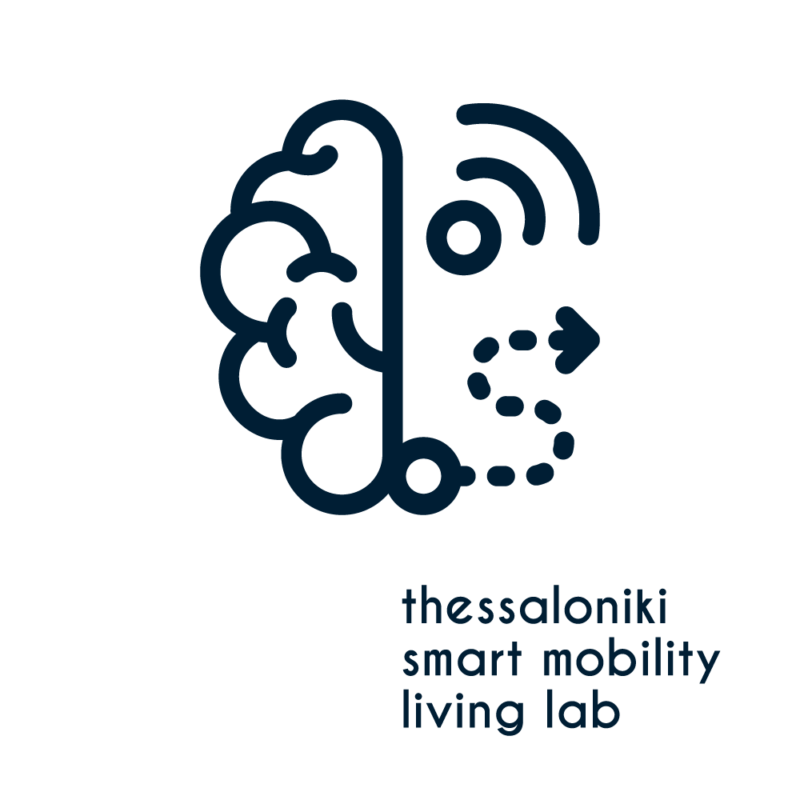Historically Labelled Living Labs
Since its formation in 2006 ENoLL has labelled 440+ Living Labs. See the full list of Labelled Living Labs who are not active members of the network.
 Thessaloniki Smart Mobility Living Lab
Thessaloniki Smart Mobility Living Lab
Thessaloniki Smart Mobility Living Lab fosters initiatives encouraging development in the transport sector and the sustainability of mobility schemes by the provision of novel technologies and innovation. Actively engaged with the end-users and relevant community stakeholders, the lab pursues a co-creation and co-design strategy of technological solutions to improve transport conditions and upgrade mobility services.The main goal is to facilitate the ultimate aim of speeding up innovation, collaboration, development and testing of new services under real-world conditions.
Thessaloniki Smart Mobility Living Lab collects, filters, processes and analyses data related to the mobility of persons and -soon- of goods, with a focus in Thessaloniki. It also ensures and validates data quality and provides value-added services to raw data combining multiple sources and contents in a modular and scalable way. This means that it has the ability to easily integrate new data sources and procedures and at the same time manage efficiently the big volume of data.
Following the principles of the “open data” movement, Living Lab’s data and services are available to public and private institutions as well as to the citizens aiming to facilitate every-day life. Thessaloniki Smart Mobility Living Lab creates appropriate algorithms and uses special software packages for facilitating the re-use of data as well as for supporting decision making at both the private and public sectors.
PROJECTS
Through the processing of data,THESSM@LL has the ability to implement test bed platforms for new technologies, innovative transportation models and algorithms and prototype for applications arising from research. Such test beds consist evidence of success and are implemented in the following projects (H2020, CEF):

ThSMLL lies at the centre of an ecosystem of mobility-related stakeholders in the city of Thessaloniki (and Greece in general), which rely on knowledge of mobility patterns in order to plan and operate; they include the Region of Central Macedonia, the Municipality of Thessaloniki, public and private transport and service providers, technology suppliers, universities and research centres/labs. The aim of the lab is to provide technological solutions for smart sustainable mobility and support innovative enterprises in issues related to smart mobility. As a result, ThSMLL relies on the ecosystem for data, hardware and networks having access to external databases through MOUs between CERTH/HIT and various public and private stakeholders and in return provides back frameworks (theoretical, legal and practical), consultancy services and (computational) solutions. Moreover, the stakeholders have access to any public results of the analyses conducted on the provided datasets in the framework of various projects. Thus, they benefit from the exchange of knowledge within the ecosystem having at the same time full access to dedicated workshops and dissemination activities.
Thessaloniki Smart Mobility Living Lab uses appropriately structured, internet-based services, which offer the possibility to engage a wider audience of citizens. Questionnaires for identifying user requirements are created and platforms, where users can voluntary state their interest in participating in various pilots and applications, are used. On their side, end-users can contribute to the collection of Living Lab’s data through their social media. The use of data shared by users such as the Facebook check-ins ensures the strong link between design and understanding real-life behaviour of users and further strengthens local collaboration. The Living Lab’s data is open to the public which has the ability to benefit from the re-use of this data in the form of useful applications.
Thessaloniki Smart Mobility Living Lab aggregates data from its eco system via different types of sources. Internal databases are composed by existing historical databases and libraries of CERTH/HIT, by real-time data collected by the external network of sensors (Bluetooth Devices Detectors, Loops and Cameras, Cooperative Road Side Units and Cooperative On Board Units) as well as the data collected from the social networks (Facebook -Graph API). In addition, the laboratory has access to external databases through MoUs between CERTH/HIT and various public and private stakeholders (Taxi Floating Car Data, Smart Traffic Lights, Urban Buses Information, Floating Train Data). Data from the aforementioned, multiple sources are combined to better understand any correlation and dependencies among them.
Thessaloniki Smart Mobility Living Lab is intended to be a one-stop source for mobility data and services in Greece. The Living Lab is always open to adopting cutting edge tools and technologies. ThSMLL provides services to end users, companies and organizations and thus, the system’s overall stability, continuity and reliability levels are among the basic priorities of the Living Lab. Both mature and cutting-edge technologies are used side-by-side in order to handle efficiently the data streams and to export the maximum possible value.
Since its formation in 2006 ENoLL has labelled 440+ Living Labs. See the full list of Labelled Living Labs who are not active members of the network.